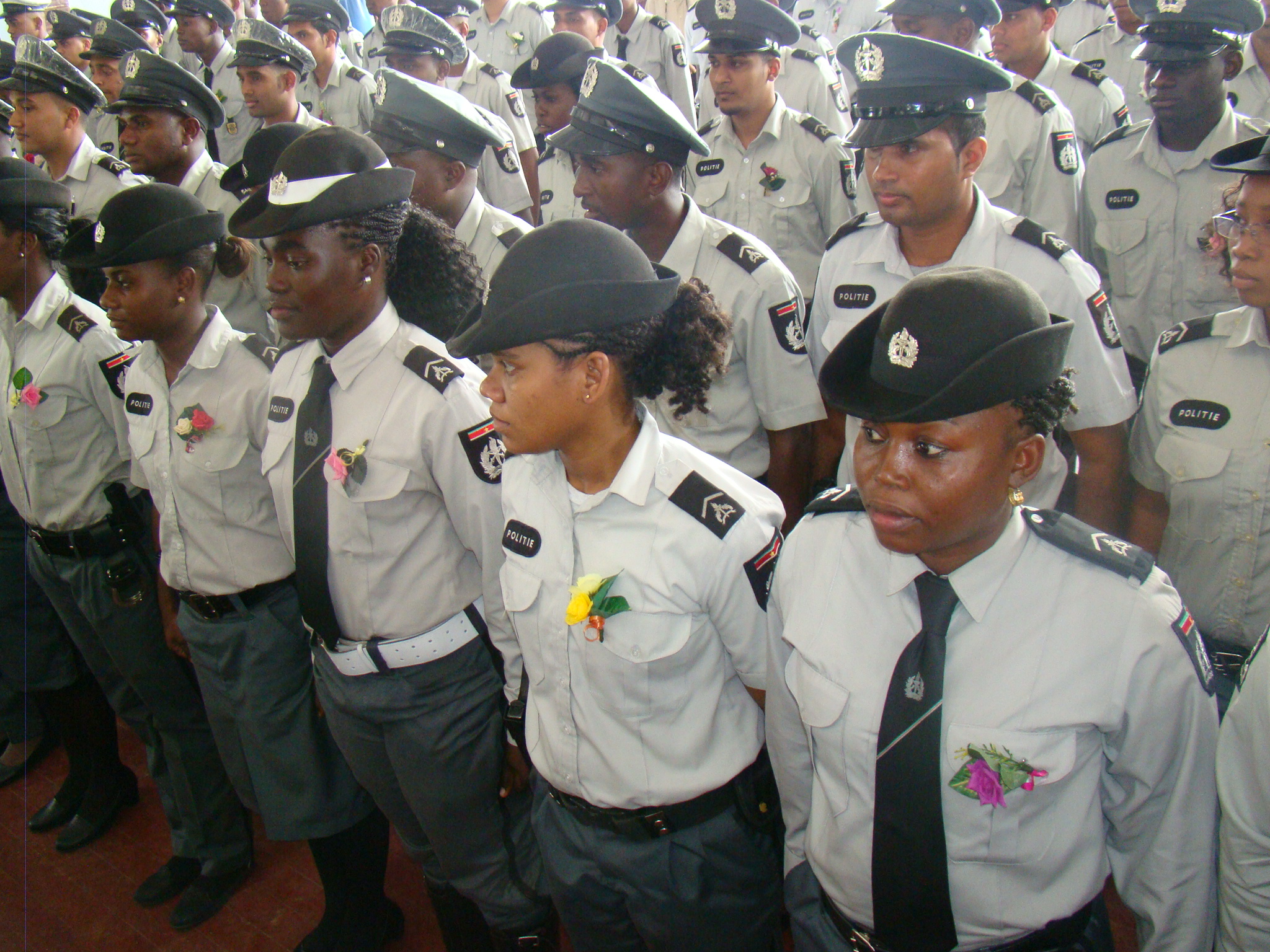The Nature Of Police Work Dagblad Suriname

In political philosophy, monopoly of force or a monopoly of the legal use of force is the property of a polity which is the only entity (Institute, body) in its jurisdiction that legitimately uses force, and thus the supreme authority of that territory Max Weber defines a state as a human community that (successfully) claims the monopoly of the legitimate use of physical force within a given territory and places the right to use force with institutions such as the police and the armed forces in order to maintain order.
to enforce [politics as a vocation 1919, Leviathan Thomas Hobbes, Les Six livres de la Republic Jean Bodin, States monopoly on violence André Munro].
In the Republic of Suriname, violence is a monopoly of the State The police This Constitutional Institute is part of the State Administration that deserves special discussion, because in it society always most emphatically encounters the executive power.
(vdr Pot/donner P 392/jw Haarman/knkranenburg
) The police perform their duties on the basis of the Constitution (art.
178) and all legal rules Many think they know the police duties because they have great diplomas or because they happen to hold a certain position.
They know how to handle police work better than the called This isn't a story.
We find these in all layers of society and especially in our DNA There we find the real police philosophers and police sociologists.
I have searched all bookstores in this country for 1 sheet about police science and police science based on these police scientists Guess what, I found “0”.
And, it is precisely one individual from this group (DNA member) who got into 'tackle' with investigating officers in the lawful exercise of their duties Many people have experienced this on February 17th.
Not during a mutual drink party, but during the enforcement of the extreme, dangerous Al'Qaeda-like disruption of the democratic legal order on the road temporarily closed to public traffic, including the H Arronstraat (the street, the mythical domain, “the University in Philosophy for the Police”) where even deaths could have occurred.
Shame! The incident came across to me as if the person concerned was deliberately acting in an excessively unlawful manner (mean intellectual provocateur) against the investigating officers Yes, then you should still expect possible painful counter-reactions, call it blows, and not only.
No, there was reason enough to (detain) removal (Article 117 Wsv) and to be held in insurance until the end of all constitutional duties Decadent behavior must be punished.
This applies to everyone Also for those who believe they insist on one immunity that is indeed limited.
Irrespective of the capacity, orders of investigating officers in the lawful performance of their Constitutional duties must be strictly followed without contradictory attitude, actions impeded nor in words and deeds This is the reality and nothing else.
You have to be in it to know what this Constitutional organization is and what it stands for You shouldn't sit on the sidelines and yell about how things should be done, and, when curious sideline viewers come to call the shots.
No policeman/woman justifies violence Law enforcement, enforcement in the broadest sense of the word, enforcement of criminal law, in other words the detection of offenders and criminals, is only a fraction of the many functions that the police perform.
I am convinced that this has still not penetrated society The Constitutional functions of the Surinamese police, both globally, are full of tension and include a mouthful.
The police are available and busy 24 hours all in / all out Heavily charged with maintaining state security and solving the crime curves, expands contact with the public and must now also be confronted with this unlawful impediment in the performance of their legal duties.
Police officers are also at home with their problems Who should they turn to? Nobody cares about it, oh no “it's a choice they made, so be it.
But Factors determines what the police do” First of all, realize well: “The State is an Institution of Power”.
The authority to use force imprints police work with a unique character that distinguishes it from other fields of work Power includes the right to use deadly force, to arrest people, and to use physical force upon express notice within legal frameworks.
However the police mission is emphasized - whether it is to control suspected aggressive individuals or serious criminals - the police are trained and ultimately must be prepared to threaten violence and threat of action Police officers know their discretionary powers.
Discretion leaves its mark on all police areas The police are often free to choose between alternative courses of action, repression, preventive action or passivity.
They routinely rely on their own experience, Education, Common Sense, tact and courage and judgment to make decisions on the spot about the life and liberty of citizens Examples are huge.
In all situations, the individual police officer determines whether or not they can or should appeal to the power of the law Many factors influence discretionary decisions of the police officer in arrests, namely: behavior of the suspect, seriousness of the crime, the strength of the evidence.
The more serious the crime and the stronger the evidence, the more likely an officer is to make an arrest The more disrespectful and/or less respectful a suspect acts towards an officer, the more likely that officer is to use force.
Finally, the police are wanted everywhere and must be present to protect constitutional guarantees and to promote and maintain the general democratic legal order “It's give and take.
” When everyone is snoring, president, vice president, including all ministers and parliamentarians, that one policeman / woman is on duty Let the police perform their duties in accordance with the Constitution and pay them well for us and your safety.
[wt Teacher Of Constitutional Law Pol
Opl ] J
Beck .
Post a Comment for "The Nature Of Police Work Dagblad Suriname"